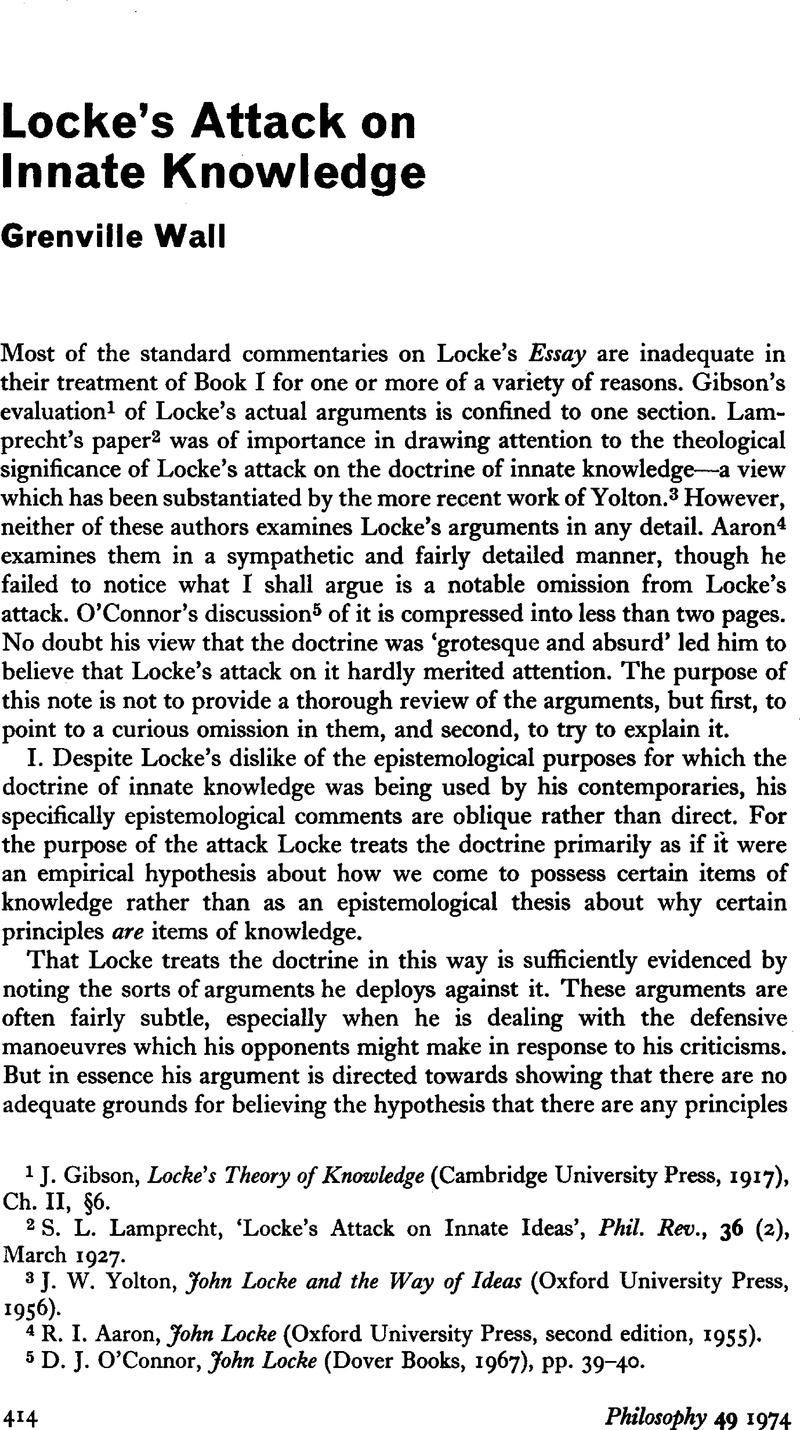No CrossRef data available.
Article contents
Locke's Attack on Innate Knowledge
Published online by Cambridge University Press: 25 February 2009
Abstract

- Type
- Discussion
- Information
- Copyright
- Copyright © The Royal Institute of Philosophy 1974
References
1 Gibson, J., Locke's Theory of Knowledge (Cambridge University Press, 1917), Ch. II, §6.Google Scholar
2 Lamprecht, S. L., ‘Locke's Attack on Innate Ideas’, Phil. Rev., 36 (2), 03 1927.CrossRefGoogle Scholar
3 Yolton, J. W., John Locke and the Way of Ideas (Oxford University Press, 1956).Google Scholar
4 Aaron, R. I., John Locke (Oxford University Press, second edition, 1955).Google Scholar
5 O'Connor, D. J., John Locke (Dover Books, 1967), pp. 39–40.Google Scholar
6 No doubt Locke chose to develop his criticisms against such principles first, before applying them to moral and religious principles, (a) because they seemed to be particularly good candidates for innateness, (b) because his criticisms might be more impartially considered when deployed against abstract principles.
7 Essay, I, ii, 3Google Scholar. All references are to the Everyman edition (Dent, 1961) edited by J. W. Yolton. All italics are reproduced from the text.
8 I, ii, 4.
9 I, ii, 5.
10 I, ii, 5.
11 I, ii, 5.
12 I, iii, 1–2.
13 I, iii, 9–13.
14 I, iv, 1–8.
15 I, ii, 7.
16 I, iii, 27.
17 Op. cit., Ch. II.
18 See for example Yolton's quotation from Sherlock, William's Digression Concerning Connate Ideas (1704)Google Scholar, ibid., p. 61.
19 I, iv, 25.
20 Yolton, , op. cit., p. 44.Google Scholar
21 See for example I, ii, 16.
22 I, iii, 4.
23 See for example, I, iii, 13 and 14, and I, iv, 12.
24 I, ii, 1.
25 See I, i, 5, and I, iv, 12 and 23.
26 See also I, iv, 12 and 22.
27 I, iv, 13.


